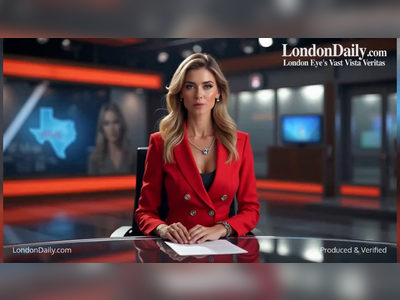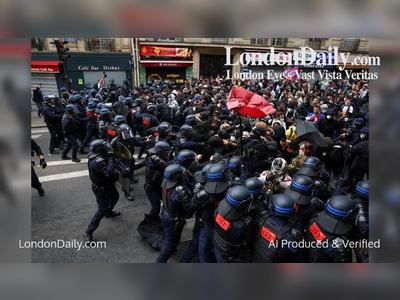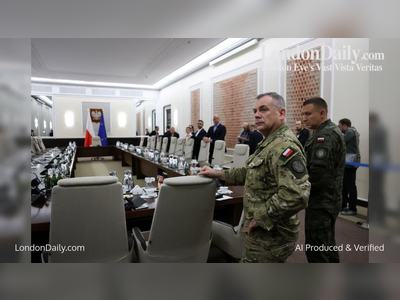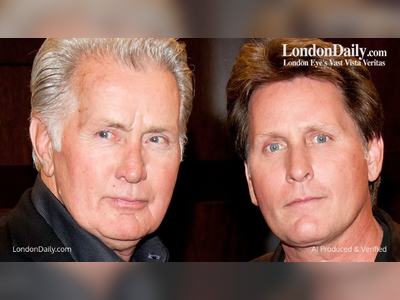Peter Mandelson Takes Office as British Ambassador to the United States
Insights from veteran diplomats on navigating Trump's Washington
LONDON — Peter Mandelson has officially begun his tenure as the United Kingdom's ambassador to the United States, settling into his new residence in Washington, D.C. Mandelson, a prominent figure in UK politics and known for his strategic influence, faces the complex task of managing diplomatic relations under the unpredictable leadership of President Donald Trump.
During a recent episode of POLITICO's Westminster Insider podcast, experienced former diplomats from both the United Kingdom and the U.S. shared insights geared towards assisting Mandelson in his new role.
Key strategies discussed include establishing connections with influential business figures rather than solely focusing on the political staff within the White House.
Kim Darroch, who served as U.K. ambassador from 2017 to 2019, emphasized the importance of engaging with wealthy business leaders, describing them as part of a "billionaires' club" that President Trump frequently consults.
Darroch noted that Trump often places more trust in these businessmen, who are perceived as having a more accurate feel for the American economy than his political advisors.
Another important perspective was provided by John Bolton, who held the position of national security adviser during Trump’s first term.
Bolton pointed to the late Shinzo Abe, former Prime Minister of Japan, as a successful model for diplomacy with Trump.
According to Bolton, building a personal rapport with the president, including casual interactions such as golf, can enhance diplomatic relations.
Peter Westmacott, U.K. ambassador from 2012 to 2016, highlighted the significance of the British residence in Washington as a diplomatic tool.
Westmacott recalled how the residence has a storied history, hosting prominent figures and events that contribute to British cultural representation in the U.S. In his experience, organizing engaging events can be an effective way to foster important connections.
David Manning, who served as U.K. ambassador between 2003 and 2007, spoke about the necessity of maintaining access to key political players in Washington.
Manning noted that during significant events such as the Iraq War, effective communication with influential American officials proved crucial for the UK’s interests.
He stressed the need for ambassadors to be proactive in making connections, emphasizing that lobbying is a fundamental aspect of their role.
As Mandelson begins his duties, he will need to navigate these multifaceted strategies while representing British interests in a politically charged environment characterized by unique challenges and opportunities.
During a recent episode of POLITICO's Westminster Insider podcast, experienced former diplomats from both the United Kingdom and the U.S. shared insights geared towards assisting Mandelson in his new role.
Key strategies discussed include establishing connections with influential business figures rather than solely focusing on the political staff within the White House.
Kim Darroch, who served as U.K. ambassador from 2017 to 2019, emphasized the importance of engaging with wealthy business leaders, describing them as part of a "billionaires' club" that President Trump frequently consults.
Darroch noted that Trump often places more trust in these businessmen, who are perceived as having a more accurate feel for the American economy than his political advisors.
Another important perspective was provided by John Bolton, who held the position of national security adviser during Trump’s first term.
Bolton pointed to the late Shinzo Abe, former Prime Minister of Japan, as a successful model for diplomacy with Trump.
According to Bolton, building a personal rapport with the president, including casual interactions such as golf, can enhance diplomatic relations.
Peter Westmacott, U.K. ambassador from 2012 to 2016, highlighted the significance of the British residence in Washington as a diplomatic tool.
Westmacott recalled how the residence has a storied history, hosting prominent figures and events that contribute to British cultural representation in the U.S. In his experience, organizing engaging events can be an effective way to foster important connections.
David Manning, who served as U.K. ambassador between 2003 and 2007, spoke about the necessity of maintaining access to key political players in Washington.
Manning noted that during significant events such as the Iraq War, effective communication with influential American officials proved crucial for the UK’s interests.
He stressed the need for ambassadors to be proactive in making connections, emphasizing that lobbying is a fundamental aspect of their role.
As Mandelson begins his duties, he will need to navigate these multifaceted strategies while representing British interests in a politically charged environment characterized by unique challenges and opportunities.










